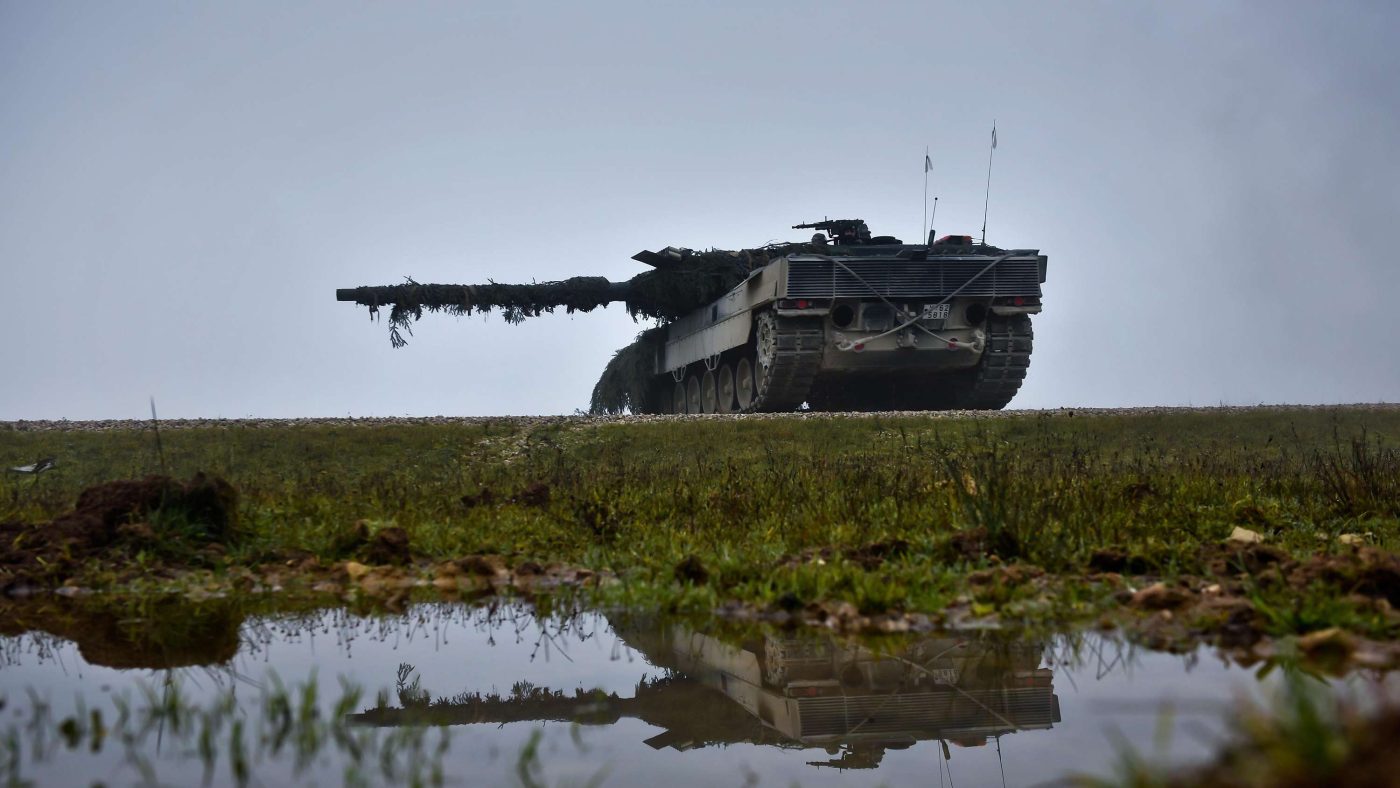The half-measures agreed at Ramstein reveal that there is still no such thing as Europe, politically speaking. Rather, pace Bismarck, Europe remains a congeries of competitive quarreling states which cannot arrive at a consensus regarding Russian security threats or the means to counter them.
Too many European states, as Dominique Moïsi wrote a generation ago, still want to be Switzerland and take a holiday from history, particularly on defense and security issues. Thus, Russia’s aggression was not only unexpected but unwelcome for it rudely disturbed their dogmatic slumbers. This is particularly true of Germany, whose obduracy on the issue of providing tanks to Ukraine shattered any hope of a consensus at this meeting.
Publicly, Germany argues that it will only act if the US sends its M1 Abrams tanks to Ukraine, underlining that it never acts alone but only in concert with others. Providing its Leopards, it says, or those in the armories of other NATO allies, is off limits because it might provoke Russia to escalate the war to include NATO.
And anyway, Germany says, the idea of German tanks killing Russians is still too much to accept given its unhappy history.
Lastly, it points to its truly outstanding efforts to reduce its energy dependence as proof of its solidarity with allies in resisting Russian aggression against Ukraine.
None of these arguments stands up to analysis.
The claim that Germany only acts together with its allies certainly fails to hold water. The entire sorry saga of Nord Stream pipelines 1 and 2 reveals a Germany determined to push its interests at the expense of its own interests and in defiance of allies’ interests. At the inception of those projects, Economy Minister Sigmar Gabriel told Vladimir Putin (in a conversation leaked by the Kremlin) that the wonderful thing about the project is that it didn’t have to be discussed with Germany’s allies in the European Union (EU.) So much for solidarity.
Moreover, even after Russia seized Crimea in 2014, Germany continued to increase its dependence upon Russian oil and gas to the point that Russia provided over half of Germany’s energy needs. That cash was critical to the Russian treasury and funded the Russian military buildup that has since been unleashed in an all-out war.
As for German weaponry, well the guilt and revulsion about killing Russians certainly shows how different this Germany is from the country of 80 years ago. Nevertheless, this is too complacent an answer.
The prevalence of this refrain conveniently elides Nazi Germany’s murder of millions of Poles, Ukrainians, Balts, Russians, and Jews, many of whom were also Soviet citizens, into a single category. This is an evasion of moral responsibility rather than an acceptance of it. Indeed, it is doubtful if Germany is ready to fight for anyone, including itself.
As a German officer student of mine told me in 2018, the public is unwilling to pay for defense spending lest an active policy exposes Germany to undue risks. Moreover, in January, the number of active-duty Bundeswehr soldiers who declared themselves conscientious objectors rose fivefold to almost 1,000, apparently through fears of being deployed to Ukraine. Likewise, the much-vaunted defense spending pledge which followed Russia’s aggression has stalled out, while German public opinion still clearly expects the US to defend it in case of attack.
There is, at the root of this, a “German world” in which their country has “moved beyond power politics, the national interest, and militarism.” It’s a parallel reality in which trade is everything and force should be nothing.
Such thinking is prevalent among Germany’s ruling SPD party. Just before the all-out invasion, SPD parliamentary leader Rolf Muetzenich advocated “a pluralistic security community that “excludes war between its members and ultimately overcomes military alliances.” Perhaps, he mused, “Europe can have alliances without militaries.”
Such sentiments and behaviors reflect the success of Russian efforts to penetrate the thinking of German society and its influence makers. But beyond that, it reflects a profound moral-political double bookkeeping that paralyzes defense, European solidarity, and the emergence of a genuine European community. This moralism reflects what amounts to a profound fear of defending European and even German interests, and a self-imposed moral cowardice in the guise of superior rectitude.
This posture sacrifices Ukraine to Russia under the guise of superior morality and validates the Trumpian critique of Germany and other allies. Ultimately, the German government’s behavior recalls that of the European governments of the 1930s and 40s who, as Churchill famously observed, hope that if they feed the crocodile, it will eat them last.
Ukraine may be the crocodile’s (or bear’s) current prey but it is hard to believe he would be sated by that meal. If he succeeds, he will turn his attention to Germany and its NATO neighbors.
Given Germany’s current response, it appears that it will be content to let others bear this burden while it inhabits the never-never land of political moralism, and anxiously awaits the crocodile.
Stephen Blank is Senior Fellow at the Foreign Policy Research Institute www.fpri.org
Europe’s Edge is CEPA’s online journal covering critical topics on the foreign policy docket across Europe and North America. All opinions are those of the author and do not necessarily represent the position or views of the institutions they represent or the Center for European Policy Analysis.





